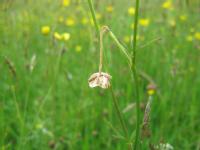Buttercups alert farmers to first signs of subarctic fungus in the UK

 A plant disease normally found in subarctic climates has been identified for the first time in the UK in buttercups as far south as Herefordshire.
A plant disease normally found in subarctic climates has been identified for the first time in the UK in buttercups as far south as Herefordshire.
Sclerotinia subarctica, a fungus known to affect both crops and wild plants, has also been found in carrots and meadow buttercups in Perthshire by plant scientists at the Warwick Crop Centre in the School of Life Sciences at the University of Warwick.
It is closely related to Sclerotinia sclerotiorum which commonly causes disease in crop plants such as lettuce, carrot and oilseed rape.
In carrots, both fungi infect the foliage and can travel down the leaves and invade the crown of the carrot, causing them to rot in the ground or in store once they have been harvested.
The diseases don’t have such a severe effect on the long-term health of meadow buttercups – the flowers become infected and occasionally the foliage dies back, but underground rhizomes are generally unaffected and they are able to recover the following year.
Dr John Clarkson, Research Scientist at Warwick Crop Centre at the University of Warwick, said: “This is the first time Sclerotinia subarctica has been identified in the UK”.
“Our research raises interesting questions about how widespread this disease is as it has previously only been reported in very cold climates such as Alaska and Norway. However, it’s further south than scientists originally suggested”.
“By studying Sclerotinia subarctica on meadow buttercups and crop plants we have a great opportunity to find out more about its epidemiology as further research needs to be done on understanding this disease and the potential threat it poses to agriculture in the UK.”
The research by Dr Clarkson also focuses on Sclerotinia sclerotiorum in crop and wild hosts in the UK and is funded by Defra.
A new PhD funded by the Horticultural Development Company will investigate Sclerotinia subarctica further.
Notes to editors
An image of an affected buttercup can be found here.
Dr Clarkson can be contacted on + 44(0)24 7657 5148 or John.Clarkson@warwick.ac.uk
Or you can contact Anna Blackaby, University of Warwick press officer, on +44 (0)2476 575910 or +44 (0) 7785 433155 or a.blackaby@warwick.ac.uk
